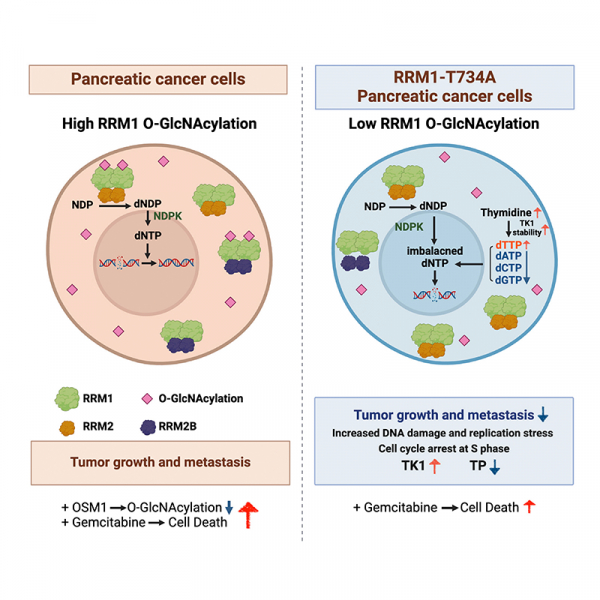O-GlcNAcylation of ribonucleotide reductase large subunit M1 (RRM1) at position 734 influences high glucose-induced genomic instability and cell transformation in normal pancreatic cells. By disrupting the ribonucleotide reductase complex, it reduces dNTPs. Although the impact of RRM1 O-GlcNAcylation on pancreatic cancer progression remains unexplored, our CRISPR knock-in technology created the RRM1-T734A mutation to minimize RRM1 O-GlcNAcylation. In pancreatic cancer PANC-1 cells with this mutation, we observed heightened replication stress-induced DNA damage, S-phase delays, and diminished in vitro tumor cell growth. Mechanistically, RRM1-T734A enhanced its interaction with RRM2 while impairing binding to RRM2B, leading to decreased NTPs and disrupted dNTP equilibrium. Notably, it doubled dTTP levels via TK1 stabilization mediated by thymidine, resulting in S-phase delay. TK1 silencing restored RRM1-T734A-induced effects on S-phase retardation and decreased colony formation. Our findings highlight the pivotal role of O-GlcNAcylation of RRM1 at T734 in maintaining genomic stability and promoting pancreatic cancer malignancy. Furthermore, reducing RRM1 O-GlcNAcylation increased pancreatic cancer cell sensitivity to gemcitabine, proposing a potential therapeutic strategy.
